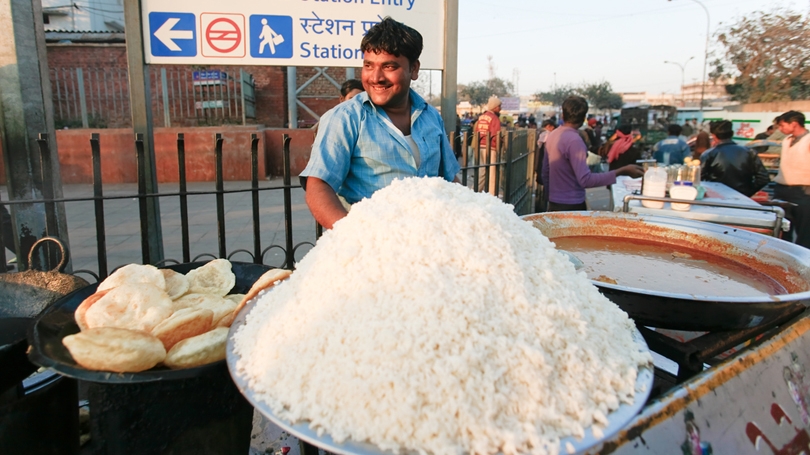
Can a Class Project Become a Business? ’14s Give It a Shot.
When Sarah Alexander ’14 studied in Delhi, she was struck by how much cooking oil street vendors use in preparing traditional Indian dishes. But she was more taken aback after discovering what happens to the oil afterward.
Many vendors sell their waste cooking oil to other vendors who can’t afford to buy fresh oil, Alexander learned. This practice is not only unsanitary, she says, but increases the amount of carcinogens in the oil. Oil that isn’t sold secondhand is often washed down drains, which can clog sewer systems and pollute water sources.
Alexander returned to Dartmouth from Delhi during her sophomore year, and soon thereafter enrolled in a course in the Environmental Studies Program. For their final project, the professor asked students to come up with a solution to an environmental problem. Alexander immediately had an idea: She teamed up with classmate Meegan Daigler ’14 to try to find a healthier way, for people and the environment, to dispose of or recycle waste oil in India’s second largest city.
Their solution? Daigler and Alexander had the idea of creating a company that buys used cooking oil from the vendors, and then sells it as fuel to drivers of diesel-powered cars—which in India account for about 50 percent of all automobiles, according to Alexander. Alexander says it takes a simple, low-cost process to prepare waste vegetable oil to be used as automobile fuel. The environmental studies course ended, but Daigler and Alexander couldn’t stop talking about their idea.
“We wanted to see if this works,” says Alexander. “One day we just sort of looked at each other and said, we need to give this a shot.”
Alexander and Daigler will travel together to Delhi for the month of December to research the project further and talk with some of the country’s estimated 10 million street vendors. In particular, the Dartmouth students want to get a better sense of how much oil costs the vendors, how much oil they use, and how they dispose of it.
Their adviser, Assistant Professor of Environmental Studies Michael Cox, thinks the students’ project has great potential.
“I think Meegan and Sarah have a really exciting project on their hands,” says Cox. “I believe it is just the type of student research project that we want to promote here at Dartmouth: one in which students are empowered to act in the world.
“Sarah and Meegan have very different personalities and energies, but what they have in common is a passion for doing interesting and important work.”
Daigler and Alexander’s different personalities and interests seem to complement each other.
Alexander, an environmental studies major, understands India’s culture, having studied in Delhi and being of Indian heritage. Daigler, an engineering and environmental studies double major, knows a lot about biodiesel fuel, having spent two summers aboard the diesel-powered Big Green Bus.
After doing research in Delhi, Daigler and Alexander will spend the winter and spring terms working on a joint independent study project that will analyze the data they collected. They will then write a proposal that assesses the profitability of their idea and examines the social, political, and environmental factors that could influence their business model.
“We don’t want to go in with this idea and just force it,” Alexander says. That said, she is encouraged by what they have found so far. If their data show that the company is feasible, Alexander and Daigler plan to launch the business after graduating from Dartmouth. Alexander is taking a marketing class at Tuck School of Business this term to further her understanding of what it takes to start a small business.
Whether or not the business proves to be viable, Daigler says, pursuing the project has been a great experience.
“It has been so exciting to drive a project purely from the desire to answer our question: Could street food waste oil be profitable?” says Daigler. “It has been a great lesson in showing the rewards—and fun—of a self-driven education.”
Alexander agrees.
“It’s neat to see an idea developed in the classroom and see how it can be applied as a business model,” she says. “Dartmouth’s been awesome in facilitating this kind of learning.”
Daigler and Alexander’s independent study project is supported by a gift from Stuart Lucas ’81.